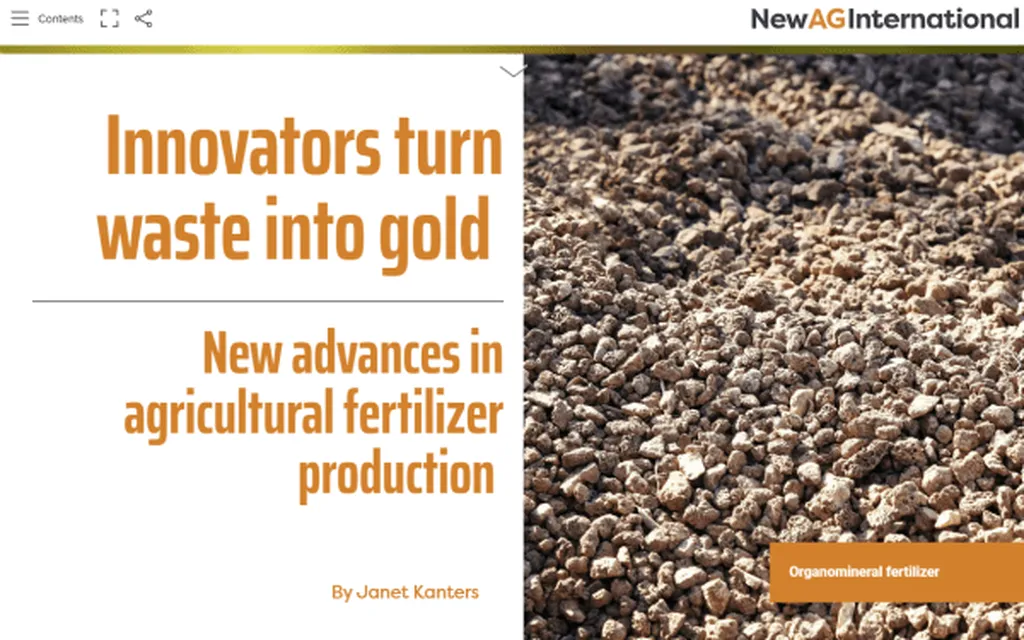In the heart of Thailand, researchers have uncovered a promising solution to a global agricultural challenge: the overreliance on synthetic fertilizers. Chaiya Klinsukon, a scientist from the Department of Innovative Agriculture at Khon Kaen University, has led a study that transforms sugar industry waste into pelletized organic soil amendments, offering a sustainable alternative to conventional fertilizers.
The research, published in the journal *Results in Engineering* (translated as “Engineering Results”), focuses on the valorization of sugar industry residues—vinasse sludge, molasses wastewater, and bio-organic compost—into valuable soil amendments. These residues, often considered waste, are now being repurposed to enhance plant growth and improve soil health.
Klinsukon and his team developed six formulations through aerobic fermentation and pelletization, with one formulation, F2, standing out due to its superior physicochemical properties. “F2 exhibited high organic matter, total nitrogen, phosphorus, potassium, and a favorable wettability index,” Klinsukon explained. “This makes it a highly effective soil amendment.”
The study’s findings are compelling. When combined with sand, F2 showed the highest early availability of essential nutrients like nitrogen, phosphorus, and potassium. In greenhouse trials with Capsicum annuum L. (bell peppers), plants treated with F2 demonstrated significant improvements in shoot height, biomass, and chlorophyll content. “We observed a 27.5% increase in shoot height and a 31.2% increase in biomass compared to the control,” Klinsukon noted. “This indicates that F2 can significantly enhance plant growth.”
The pelletized format of these soil amendments offers practical advantages, including ease of handling, controlled nutrient release, and compatibility with mechanized application. This innovation could revolutionize the agricultural sector by providing a sustainable and efficient alternative to synthetic fertilizers.
The implications for the energy sector are also noteworthy. As the world shifts towards circular agriculture and sustainable practices, the valorization of industrial waste into valuable products aligns with global efforts to reduce environmental pollution and promote resource efficiency. This research could pave the way for similar innovations in other industries, contributing to a more sustainable future.
Klinsukon’s work highlights the potential of circular agriculture, where waste is transformed into resources, and sustainability is at the forefront. “Our findings indicate that F2 is an effective organic alternative to synthetic fertilizers, contributing to improved soil fertility and sustainable nutrient cycling,” he said. “Further research should explore long-term field performance, microbial interactions, and economic feasibility to support large-scale adoption.”
As the world grapples with the challenges of soil degradation and environmental pollution, Klinsukon’s research offers a beacon of hope. By transforming sugar industry waste into valuable soil amendments, this study not only addresses immediate agricultural needs but also contributes to the broader goals of sustainability and circular economy. The future of agriculture may well lie in the innovative repurposing of waste, and Klinsukon’s work is a significant step in that direction.

